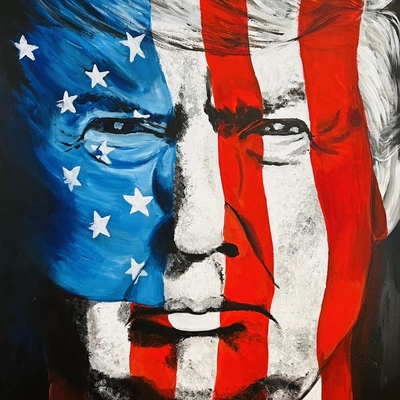Stay informed on the latest Truth Social posts from Donald Trump (@realDonaldTrump) without the doomscrolling. Consider it a public service for your mental health. (Why?)
- Jerome Powell is a disaster.
- Current Federal Reserve policy is 'Too Little, Too Late'.
- Interest rates should be lowered.
- Tariffs are successfully generating billions of dollars for the USA.
The post directly addresses critical elements of economic policy, namely monetary policy (interest rates) and trade policy (tariffs). These elements significantly influence corporate earnings, consumer confidence, and overall economic growth, which are key drivers for S&P 500 performance. Advocacy for rate cuts and praise for tariffs can shape market expectations.
The post focuses purely on domestic economic policy and trade, making no mention of international conflict, threats, or military references.
- Commodities: Calls for interest rate cuts could potentially lead to a weaker US Dollar, which might make commodities priced in USD (like Gold, XAU) more attractive to international buyers, potentially supporting their prices. Tariffs, while praised for revenue, can introduce supply chain disruptions that affect industrial commodity demand. Short-Term Watchlist: XAU/USD price action, headlines regarding central bank policy. Medium-Term Focus: Inflation expectations, global trade flows.
- Currencies (Forex): The advocacy for lower interest rates could be interpreted by markets as a signal for potential future US Dollar weakness, potentially leading to depreciation against major currencies (e.g., DXY decline, EURUSD rise). Short-Term Watchlist: USD Index (DXY) movements, Treasury yield differentials. Medium-Term Focus: Divergence in central bank policies globally, overall risk sentiment.
- Global Equities: A policy shift towards lower interest rates, as advocated, generally supports equity valuations by reducing borrowing costs for companies and stimulating economic activity. Sectors sensitive to interest rates, like technology, could see a positive impact. However, strong criticism of the Fed Chair could introduce uncertainty. Tariffs could impact earnings for companies with significant global supply chains. Short-Term Watchlist: Futures open, sector rotation (e.g., tech, industrials). Medium-Term Focus: Corporate earnings revisions, macro economic data.
- Fixed Income (Bonds): A strong call for rate cuts from a prominent political figure would likely lead to a decrease in US Treasury yields (both 10Y and 2Y), reflecting market expectations of a more dovish monetary policy. This would imply rising bond prices. Short-Term Watchlist: UST 10Y yield levels, market implied probabilities for Fed rate changes. Medium-Term Focus: Inflation outlook, Fed's reaction function.
- Volatility / Derivatives: While advocating for a specific policy, the strong and critical language regarding the Federal Reserve could introduce an element of political pressure or uncertainty into monetary policy expectations, potentially leading to temporary spikes in the VIX index as markets price in this uncertainty. Short-Term Watchlist: VIX levels, options implied volatility. Medium-Term Focus: Policy predictability, election cycle impacts.
- Crypto / Digital Assets: If lower interest rates translate into looser monetary conditions or a weaker US Dollar, Bitcoin (BTC) and other digital assets could potentially benefit as risk-on assets or as an alternative store of value. Short-Term Watchlist: BTC/USD correlation with tech equities and USD movements. Medium-Term Focus: Macro liquidity conditions, regulatory developments.
- Cross-Asset Correlations and Systemic Risk: A strong and publicly stated preference for monetary policy changes from a prominent political figure could challenge the perception of central bank independence. This could lead to shifts in traditional cross-asset correlations (e.g., between equities and bonds) if markets perceive a breakdown in policy predictability. Short-Term Watchlist: MOVE index, credit default swap spreads. Medium-Term Focus: Central bank credibility, fiscal policy implications.
- Retail Sentiment / Market Psychology: The direct and forceful language is likely to resonate with retail investors. Comments on interest rates and tariffs can directly influence retail sentiment regarding economic prospects and specific sectors, potentially leading to increased trading activity in response to perceived policy shifts or economic benefits. Short-Term Watchlist: Social media trends, retail trading volumes in related sectors. Medium-Term Focus: Influence of political rhetoric on investor behavior.

